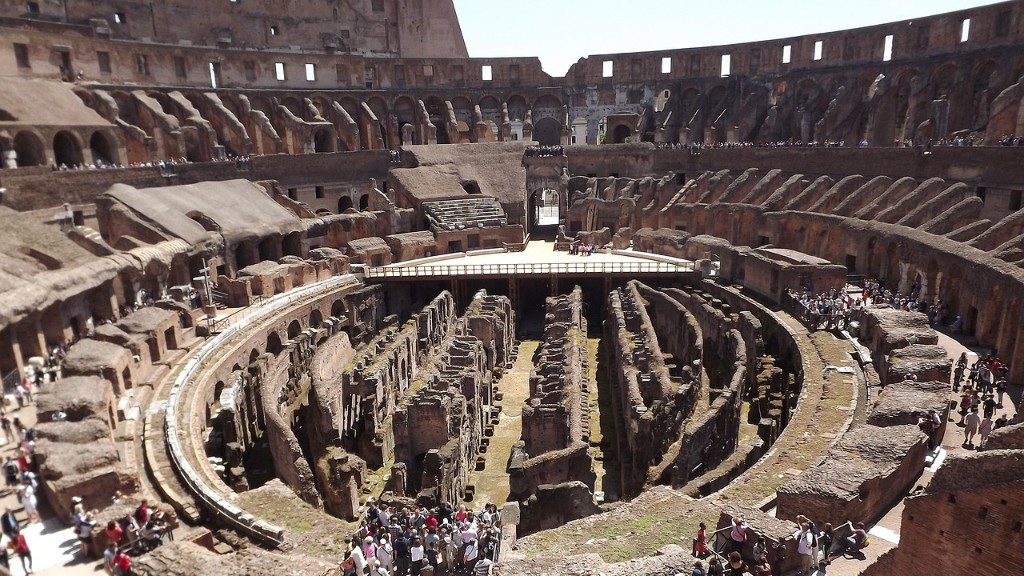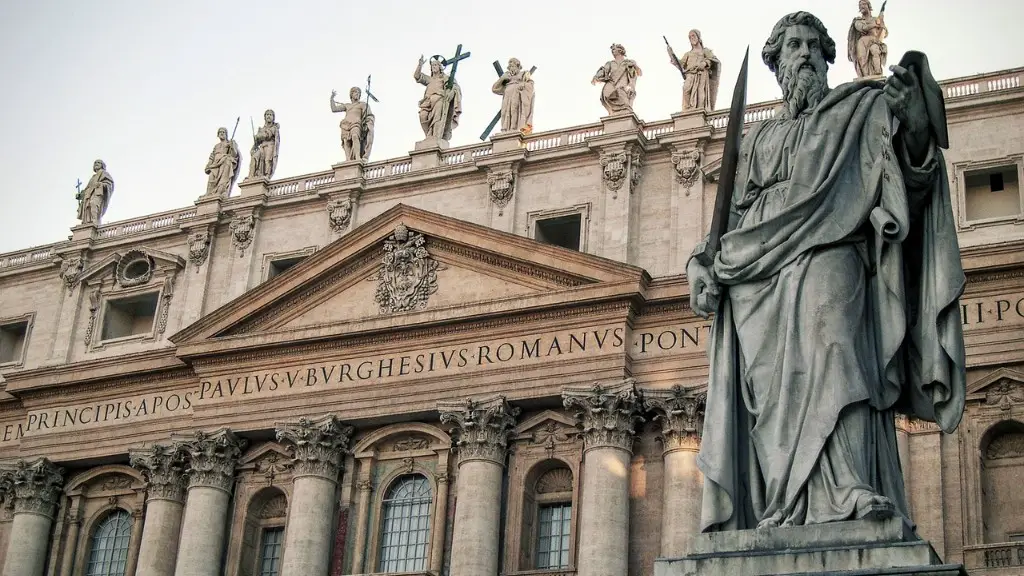The Law of Nations in Ancient Rome
The Law of Nations, a concept most commonly associated with international law and custom, was very important to the citizens of Ancient Rome. Rome was renowned for its system of justice and legal principles, which were the product of centuries of development, both within the state and in its relations with other powers. This was the Law of Nations, an expression of the basic ideas and rules accepted by the international community of relations.
At the root of the Law of Nations was the principle of natural law and equity. After the creation of the Roman Republic in 509 BC, many of the prevailing practices and rules of international law were codified by Roman law. This included the rules governing such matters as war, diplomacy, extradition, and the status of persons in different states. According to Roman law, all people within a state were equal, and the state had certain obligations to treat citizens of other countries fairly and in accordance with international standards. Such principles formed the foundation of the Law of Nations.
The Law of Nations also included provisions on the conduct of international relations between states and individuals. These provisions separated the private and public affairs of individuals, and established the rules governing international trade and commerce. Roman diplomacy, which was based on the Law of Nations, served an important purpose in the international community, by helping to arbitrate or resolve disputes among states.
Roman law specifically prohibited predatory wars and favoured mediation in disputes. Furthermore, the high priority given to the protection of civilians and respect for the sovereignty of other states was also placed at the centre of Roman foreign policy. This enabled Rome to interact peaceably with other countries and maintain the Pax Romana, the period of relative peace and stability in the Mediterranean region.
Finally, Rome also set a new standard for international law by recognizing the importance of public international law. It was the first state to adopt many of the fundamental principles of international law, including the idea that international law applied equally to powerful states and small states alike. These ideas ultimately spread throughout the Mediterranean and beyond, forming the basis of the modern system of international law.
The Legacy of the Law of Nations
Modern international law is the direct descendant of the Law of Nations developed by Rome. Over the centuries, many of the principles first formulated by Rome were adopted and developed by states around the world. For example, the Second and Third Geneva Conventions were based on Roman concepts of protecting civilians, prisoners of war, and transforming inmates of conquered territories into citizens. Also, Roman principles such as the duty of states to respect the sovereignty of others, the inviolability of diplomatic messengers, and the idea that no state may touch the property within another’s territory.
Additionally, international law still uses many of the same means and methods of dispute resolution developed by Rome, such as negotiation and arbitration. For instance, the Permanent Court of Arbitration (established in 1899), which is a leading institution for resolving disputes between international parties, was inspired by the example of Roman diplomats who sought to settle disputes through negotiation and arbitration.
The Law of Nations, then, is an example of the lasting influence of Ancient Rome on our world. Even today, international law is based on the same principles and methods developed by Rome centuries ago.
Romes Impact on European Law
The impact of the Law of Nations on European law systems, both in the past and today, is undeniable. The Roman concept of civil law was absorbed into other European legal systems, with Roman law being particularly influential in the development of civil law across the continent. Even today, countries across Europe still draw upon the Roman system of justice and legal principles in their own codes.
Indeed, many of the core concepts of European law today, including the idea of justice, the recognition of rights, and the idea of law as a fundamental, are all derived from the Roman legal system. Furthermore, the Latin language has remained the language of law in many European countries, and even today Latin legal terminology still plays a role in legal systems across Europe.
In addition, Roman law also led the way in recognizing many of the rights taken for granted today, such as the right to own property, the right to sue, and the right to appeal. Roman law was also the first to recognize certain rights of defendants, such as the right to confront witnesses and the right to appeal. These rights, which are deeply embedded in European legal systems today, were all derived from Roman law.
The Role of Equity in Roman Law
At the heart of the Law of Nations was the concept of equity, which was the foundation for much of the Roman legal system. Equity was seen as the fundamental principle of justice, and the importance of equity was seen from the start of the Roman Republic. Roman law recognized that, in some instances, the strict application of the written laws may not be sufficient to address the complexities of human affairs. Thus, it granted magistrates the authority to override such laws, in order to achieve a just outcome.
Equity also played an important role in other aspects of the Roman legal system. For example, in civil conflicts, Roman law recognized the inherent injustice of relying solely on the written law, and granted magistrates the authority to craft an equitable resolution. Furthermore, the law also recognized certain equitable defenses in criminal cases, such as duress or self-defense.
The concept of equity has had a long legacy in the world of law. To this day, many legal systems still recognize the importance of equity, in the form of equitable remedies such as injunctions or specific performance. Moreover, equity is seen as a fundamental principle in many international treaties, such as the 1949 Geneva Conventions.
The Enduring Influence of Roman Law
Today, the impact of Roman law can be seen in nearly every aspect of our lives. Roman principles and concepts can be seen in the laws of nearly every country, from the laws of contract, to the rules of evidence, to the laws of succession. Even the roots of democracy and many of its inherent principles, such as the rule of law and the separation of powers, can be traced back to the Roman Republic.
What’s more, many of the fundamental concepts of international law, such as territorial sovereignty and the inviolability of diplomatic agents, were first formulated by Rome. Even today, international law still includes many of the same principles and methods of dispute resolution developed by Rome centuries ago. Thus, it is clear that the influence of Roman law is pervasive, and its impact can be felt in nearly every aspect of our lives.
The Relevance of Ancient Romes Law of Nations Today
The Law of Nations remains as relevant to us today as it was to the citizens of Ancient Rome. Across history, nations have faced similar challenges and faced similar problems, and the Law of Nations remains a source of insight and inspiration. Even today, many of the rules and standards developed by Rome, such as the principles of international law, are still in play. Moreover, the spirit of equity, which was so central to Roman law, continues to guide both national and international law to this day.
Furthermore, the Roman ideal of justice has left an enduring mark on our world. Roman concepts of justice, such as the equality of all persons before the law, the recognition of certain rights, and the inviolability of diplomatic principles, continue to shape our legal systems and our understanding of justice. Similarly, Roman respect for the sovereignty of other states is a fundamental principle of modern international relations.
In conclusion, Rome’s legacy can still be seen in many aspects of our lives, from the way we view justice to the way we interact with other nations. The Law of Nations, then, is a reminder of the enduring influence of Ancient Rome and its enduring relevance to our modern world.




